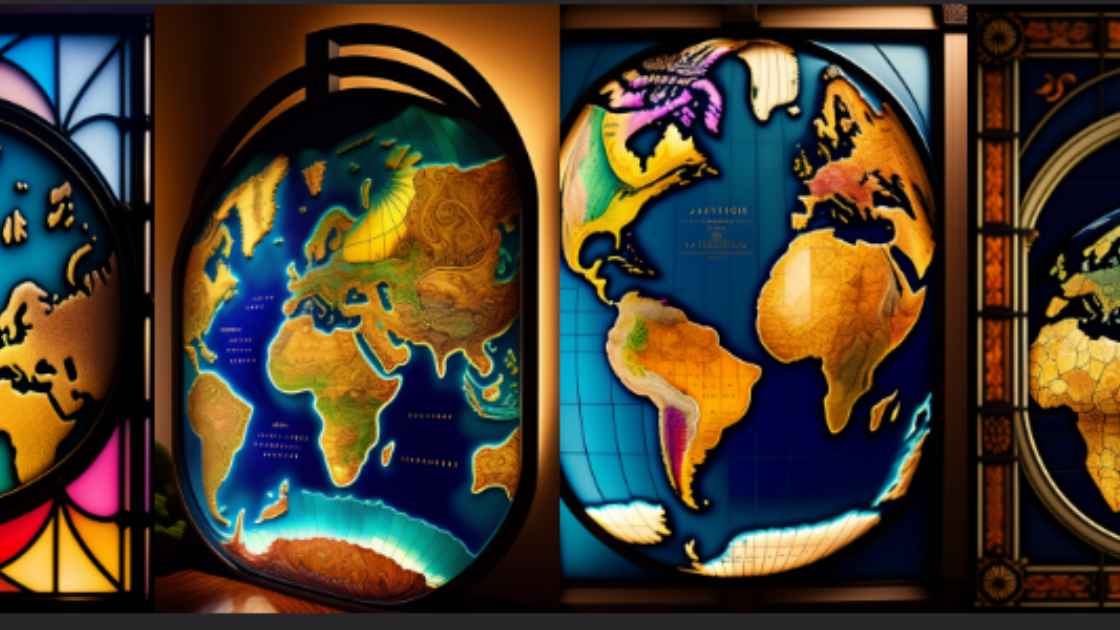How Christianity Became the Dominant Religion
I’d like to ask you. If Christians fully understood that their religion was not additional but a restrictive religion, not a comprehensive but exclusive religion. It was this difference that was crucial to the Spread of Christianity enough.
People accepted this theory which eventually became one of the main factors for Christianity to dominate the Roman Empire.
The author believes that the growing popularity of Taxanism in the Roman Empire paved the way for the Christian declaration that there is actually only one god and only he should be worshipped.
Therefore Christianity was the only religion known to have existed in ancient times with a tendency to spread was the only exclusive religion along with Judaism.
This combination of evangelism and exclusion eventually played a decisive role in the victory of Christianity. If Christianity was evangelism but not exclusive, the number of Christians would increase.
But heresy would have remained unaffected. Pagans would have started serving Christ as well. Along with other gods of their own choice, on the contrary, the author says that if Christianity had been exclusive but not evangelized it would have remained existing and on mainstream religion without gaining large followers like Judaism.
However, Christianity gained a large following. It wasn’t a first but as time went by the number of believers steadily increased over the years and decades and as Christianity grew paganism inevitably decreased unlike any other religion known to humans at the time.
Christianity flourished by removing its competitors. Another feature that Distinguished Christianity from all religions throughout the Roman Empire was that dominated all aspects of life that had always been regarded as separate from religion.
Accepting Christianity did not only mean participating in ceremonies, unlike other religions. Such as the Emperor worshiping folk cults and ancestor worship in the case of these pagan religions. The ritual of worship itself was religion.
However, it is clear that rituals such as baptism meals Prayers, and praise are important aspects of religion. But there were only a few in any case Christianity included a code of ethics a unique way of
looking at god and anecdotes about god’s involvement in human history in the past.
Christianity is a religion to which a person’s whole life is related. It was a religion that encompasses everything today. You learned why Christianity was able to rule the world. I will learn about the excellence of Christianity next time too
The History Of Christianity
Nietzsche: Christianity
In Friedrich Nietzsche’s view, Christianity was nothing more than Platonic fantasy becoming popular and religious.
So he said,
“Christianity is just a Platonic illusion that has become popular and religious.”.
So he called Christianity Platonism for the people. The idea refers to seeing continuously with the eyes of the original spirit, despite the plurality and replacement of everything.

Religion: Christianity
For the existence of all beings, humans relate to all beings because they are open to the fact that all beings exist.
The word religion comes from Latin. This means ‘reunion,’ the reunion of things that will be superior to humans and humans, more advanced, and stronger.
It is not clear what kind of “relationship” with the high-level thing the concept of “reunion” means. For an object to have a particular characteristic, there must be a material assigned to the property first.
So you can distinguish ‘religious from ‘accepting or holding this image’ in everything that exists: shape and material.

The Origin of Christianity
After the advent of Christianity, the idea of finding the fulfillment of life in the late ancient period and the Middle Ages, which is the extension, is revived in a new way.
Platanus interpreted in the 3rd century eternity as the act of control — Platonic, the idea of God. In this way, God can be the object of the power that Aristotle described as “theoria.”.
The study of one’s spirituality became the article of association of Christians meditating In seclusion in monasteries. ‘Articles of Association’ and ‘ objection’ are also a kind of work to look at.
The life immersed in Theoria was called “bios theoretikos which means, Theoretical Life”, and the Christian Latin expression “vita contemplativa, which means contemplative life.
The expression “Vios Theoreticos,” means a life that values practical praxis in a narrow sense.
The “action” of a pious and diligent human being, who knows that life after the original sin is a hardship and that life-related to eternity is sporadic, has become a political practice that practices the purpose itself.
The concept of ‘logos’ is most appropriate to translate into ‘word.’
However, if you do not understand this concept of ‘logos more accurately, the translation Word ‘word’ can cause misunderstanding.
The word logos was understood as a means for humans to explain each other’s explanations, in other words, our way of doing things, and eventually to justify them.
Thales said that God is the intelligence of Kosmos, and the universe is alive and filled with spirits at the same time, and the divine force that moves it passes through the moisture as an element.





